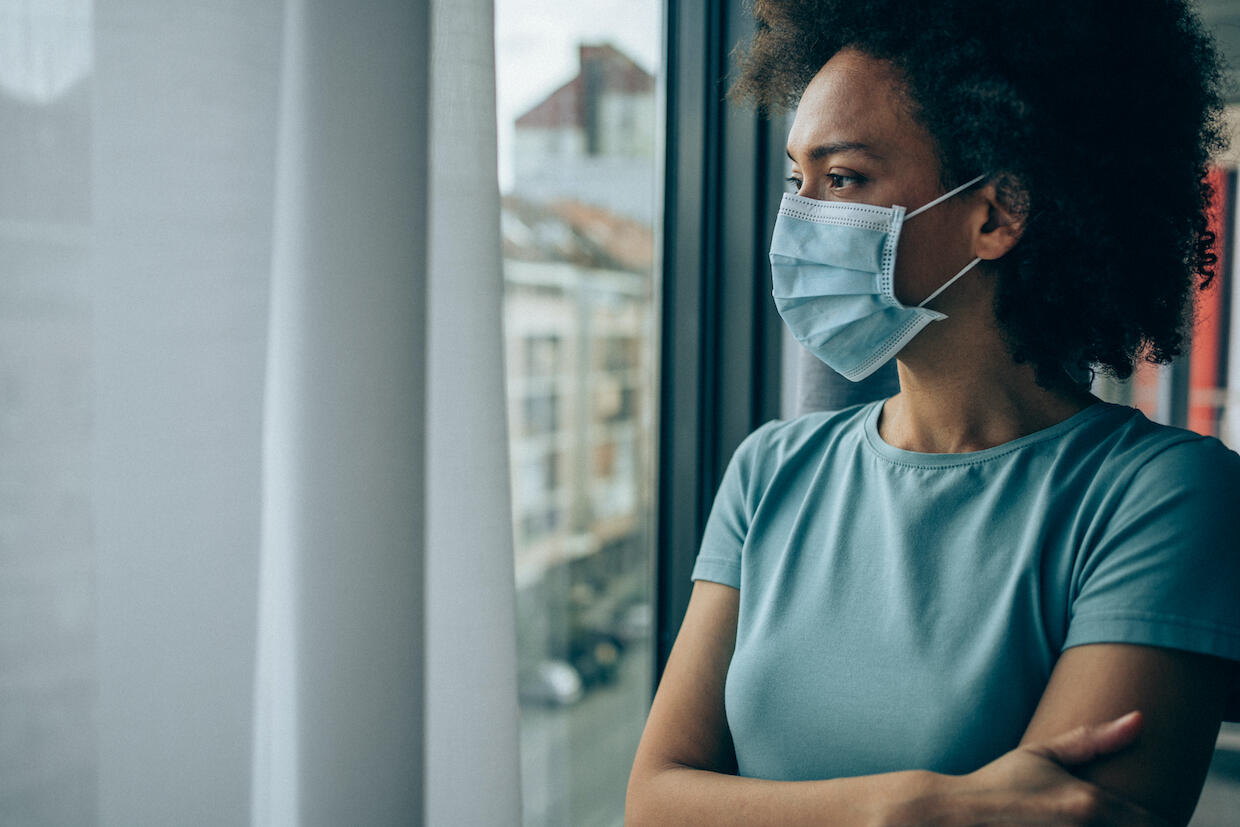
June 2, 2021
What was COVID-19’s impact on mental health, well-being and substance use early in the pandemic?
Share this story
During the initial surge of the COVID-19 pandemic, researchers at Mount Holyoke College and Virginia Commonwealth University examined a sample of 236 people in the U.S. to assess the impact of the pandemic on mental health, well-being and substance use.
The researchers also specifically looked at whether a history of adverse childhood experiences might interact with exposure to pandemic-related events to predict mental health, well-being and substance use outcomes.
The study, “A Prospective Study of Mental Health, Well-being, and Substance Use during the Initial COVID-19 Pandemic Surge,” was conducted by Katherine C. Haydon, Ph.D., an associate professor of psychology and education at Mount Holyoke, and Jessica Salvatore, Ph.D., an assistant professor in the VCU Department of Psychology in the College of Humanities and Sciences. It will be published in a forthcoming issue of the journal Clinical Psychological Science. The research is unique in that Haydon and Salvatore had collected data on participants prior to the pandemic, and so were able to prospectively examine change over time, rather than relying on retrospective reports from participants.
Salvatore discussed the study’s findings with VCU News.
The study’s primary goal was to investigate changes in depressive symptoms, indicators of well-being (such as stress, sleep and relationship satisfaction), and substance use. What did you find?
We found that people who experienced more negative pandemic-related changes (e.g., more disruptions in employment/education, finances, social life, etc.) had greater increases in depressive symptoms and stress; greater declines in relationship satisfaction; and were more likely to report feelings of peritraumatic distress and anxiety.
Secondly, we found that people who experienced a greater number of adverse childhood experiences were also more likely to experience negative pandemic-related changes.
Taken together, our findings suggest that those who were already most vulnerable (owing to a history of adverse childhood experiences) were more likely to bear a heavier burden during COVID-19.

Why explore the pandemic’s impact on people with a history of adverse childhood experiences?
We were especially interested in understanding whether and how the experience of COVID-related stressors was connected to the accumulation of stressors across the life course. Early experiences often can be thought of as “setting the stage” for how individuals are going to weather future storms. Our study underscores that those who experienced a number of adversities as children could especially benefit from additional support.
Were you surprised by any of your findings?
We were a bit surprised to not find massive changes in substance use. There was some evidence for an increase in cannabis use over time; however, we did not see an increase in alcohol use.
What inspired you to undertake this research?
When COVID-19 was declared a worldwide pandemic in March 2020, my collaborator Dr. Katherine C. Haydon and I realized that we had a unique opportunity to look, prospectively, at changes over time in mental health, well-being and substance use.
How do you hope this study contributes to understanding the pandemic’s effects, and to understanding the lasting impact of adverse childhood experiences?
There is a lot of research aimed at understanding the impact of COVID-19 on mental health, substance use and well-being. Unfortunately, very few of these studies have measures of how participants were doing prior to the pandemic. Our study is unique in that we had collected data on participants prior to the pandemic. Our findings also contribute to discussions of how our government and social service agencies can best allocate resources to buoy those who need it most as we turn the corner on this pandemic. Individuals with a history of adverse childhood experiences would especially benefit from more support.
Do you plan to continue studying the impact of the pandemic?
The data in this paper was collected from April 2020, so very early in the pandemic. We also followed up with the sample in January, and are looking forward to analyzing that data soon.
Subscribe to VCU News
Subscribe to VCU News at newsletter.vcu.edu and receive a selection of stories, videos, photos, news clips and event listings in your inbox.







